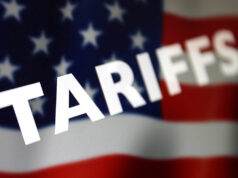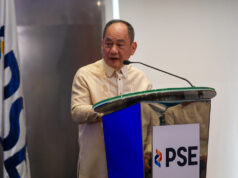THE Supreme Court (SC) dismissed a petition questioning the constitutionality of “bundling” of airport development projects in five provinces, ruling that the matter must first be tested in a lower court.
In a 42-page decision written by Associate Justice Francis H. Jardeleza, the SC said the arguments of the Gios-Samar, Inc., a nongovernmental organization composed of farmers and fisherfolk from Samar who were among the victims of Typhoon Yolanda, “are inextricably intertwined with underlying questions of fact.”
“This Court, however, is not a trier of fact. We cannot resolve these factual issues at the first instance. For this reason, we dismiss the petition,” the SC said.
The court said that it is not mandated by “structure or rule” to receive or evaluate evidence “in the first instance” as those are the primary functions of lower courts such as regional trial courts or the Court of Appeals.
“The doctrine of hierarchy of courts dictates that, direct recourse to this Court is allowed only to resolve questions of law, notwithstanding the invocation of paramount or transcendental importance of the action,” the high court ruled.
“This doctrine is not mere policy, rather, it is a constitutional filtering mechanism designed to enable the Court to focus on the more fundamental and essential tasks assigned to it by the highest law of the land,” it added.
The case stemmed from the March 2015 decision of the Department of Transportation and Communication and the Civil Aviation Authority of the Philippines to bundle into two groups the airport development projects to offer to bidders.
The combined Bacolod-Silay and Iloilo projects represented Bundle 1, valued at P50.66 billion, while Davao, Laguindingan, and New Bohol (Panglao) made up Bundle 2 worth P59.66 billion.
In the petition, Gios-Samar said the bundling of projects will allow companies with “questionable or shaky financial background” to have access to the projects by joining consortia. It also claimed the process violates the constitutional prohibition on monopolies and that bundling will “surely perpetrate the undue restraint of trade.”
The SC ruled that the petitioner failed to show how the process violates the Anti-Dummy Law and did not identify which corporation made false claims about its capital structure.
The high court also rejected the claim that the process allows companies of questionable background to access projects, noting that these matters were questions of fact.
“Even assuming that petitioner is referring to any or all of the five companies who have been pre-qualified to bid in the projects, its assertion that these companies are not financially able to undertake the project raises a question of fact, financial ability being a pre-qualification requirement,” the SC ruled.
The high court also added that the bundling of projects does not violate the constitutional prohibition on monopolies and restraint of trade.
“(W)e find that the grant of a concession agreement to an entity, as a winning bidder, for the exclusive development, operation, and maintenance of any or all of the Projects, does not by itself create a monopoly violative of the provisions of the Constitution,” the SC said, citing precedent which allows certain public utilities to be given exclusive franchises. — Vann Marlo M. Villegas



